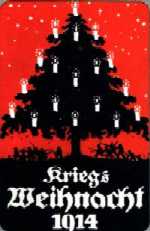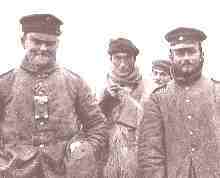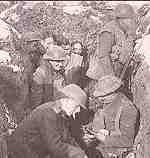No Justice, No Peace- Black Lives Matter- You Have Got That
Right Brothers and Sisters-Speaking Truth To Power -The Struggle Continues...
Discomfort is necessary to bring change, protesters say

Sean Proctor/Globe Staff
Protestors marched in Copley Square Wednesday during a First Night protest over grand jury decisions not to indict white police officers in the deaths of unarmed black men.
Brenden LaRosa showed up to protest during First Night festivities with a message: Americans must talk to each other about race and policing, no matter how hard — or how unpopular — the conversation is.
“We almost want people to feel uncomfortable. Then you’re forced to answer this question, and you’re forced to question the way you feel about it,” said the 19-year-old from Everett, who joined other demonstrators Wednesday evening in Copley Square.
He estimated that he has been to five protests against the recent grand jury decisions not to indict white officers who killed unarmed black men in New York and Ferguson, Mo. “We don’t want you to walk by and think you didn’t see anything.”
Organizers and participants of the First Night Against Police Violence protest, which drew about 50 participants to a peaceful march and about 100 to a die-in at Copley Square, said they are aware that some people wish the demonstrations that have swept Boston and the rest of the country since the Ferguson decision in November would end.
But, they say, their movement is not about convenience or comfort, and they have no plans to stop.
“We have a right to express our outrage,” said Brock Satter, 43, of East Boston, who helped organize the protest. “When free speech and demand for equal rights and justice become unwelcome in the country, it’s a dark day for America. We should all be very concerned about that.”
The First Night protest was small in comparison to prior demonstrations in Boston, some of which drew thousands of people. During a press conference Tuesday, Mayor Martin J. Walsh and Police Commissioner William B. Evans said they would accommodate demonstrators, but said First Night was the wrong place to hold a die-in, in which protesters lie on the ground to symbolize death. Walsh called for protesters to come forward to have a dialogue with him.
But the organizers do not represent a single group, nor is there a single leader. There is no central list of demands. Past protests have included activists from Black Lives Matter, We Are the Ones, Socialist Alternative, and the International Socialist Organization, as well as some who were active in the Occupy Boston movement.
“I think people have to understand that we have no guides. Martin Luther King and Malcolm X have been dead for 50 years,” said Brandi Artez, 28, of Boston, who spoke at the die-in. “We’re pretty much feeling our way through the dark and learning as we go.”
Sarah Sobieraj, an associate professor at Tufts University who studies politics, media, and social movements, said in a phone interview that disruption can be a double-edged sword for activists.
“It almost always gets media coverage, but most times, the coverage ends up focusing on the disruption, not the message of the protest,” said Sobieraj, who did not attend the protest. “It’s tricky because it can alienate people and sabotage the coverage of a protest. However, on the other hand, polite protests are invisible.”
On Wednesday evening, marchers kept to the sidewalks instead of walking in the streets as they have in the past. Onlookers mostly took pictures; some raised their arms in support, responding to the protesters’ call of “Hands up don’t shoot,” or honked as they drove by. Others shouted at protesters, calling them “trash,” “scumbags,” and worse.
Edmund Schluessel, 35, of Somerville, who helped organize the protest, said he and other activists have received threats of violence online. They have not reported the threats to police, he said.
Organizers are now focused on planning actions during the week of Martin Luther King Day, he said.
As for long-term strategy, organizers say they are still figuring that out. Schluessel, who stressed that he was speaking only for himself, said that perhaps activists would begin holding more sit-ins, vigils, and occupations at universities, rather than marches.
And maybe, further down the road, they would begin looking at municipal elections. Others said a sit-down with city officials was likely in the future.
Martin Henson, 26, of Boston, who helped organize the First Night protest, said he expects the struggle to be long and hard, but that activists will not quiet.
“I’m focused on the questions people are asking,” he said. “Right now, they’re asking, ‘When is this gonna stop?’ I want people to be asking, ‘What can I do about the problem?’ ”
Globe photographer Matthew J. Lee and Globe correspondent M.G. Lee contributed to this report. Evan Allen can be reached at evan.allen
@globe.com. Follow her on Twitter @evanmallen.
“We almost want people to feel uncomfortable. Then you’re forced to answer this question, and you’re forced to question the way you feel about it,” said the 19-year-old from Everett, who joined other demonstrators Wednesday evening in Copley Square.
Organizers and participants of the First Night Against Police Violence protest, which drew about 50 participants to a peaceful march and about 100 to a die-in at Copley Square, said they are aware that some people wish the demonstrations that have swept Boston and the rest of the country since the Ferguson decision in November would end.
But, they say, their movement is not about convenience or comfort, and they have no plans to stop.
“We have a right to express our outrage,” said Brock Satter, 43, of East Boston, who helped organize the protest. “When free speech and demand for equal rights and justice become unwelcome in the country, it’s a dark day for America. We should all be very concerned about that.”
The First Night protest was small in comparison to prior demonstrations in Boston, some of which drew thousands of people. During a press conference Tuesday, Mayor Martin J. Walsh and Police Commissioner William B. Evans said they would accommodate demonstrators, but said First Night was the wrong place to hold a die-in, in which protesters lie on the ground to symbolize death. Walsh called for protesters to come forward to have a dialogue with him.
But the organizers do not represent a single group, nor is there a single leader. There is no central list of demands. Past protests have included activists from Black Lives Matter, We Are the Ones, Socialist Alternative, and the International Socialist Organization, as well as some who were active in the Occupy Boston movement.
“I think people have to understand that we have no guides. Martin Luther King and Malcolm X have been dead for 50 years,” said Brandi Artez, 28, of Boston, who spoke at the die-in. “We’re pretty much feeling our way through the dark and learning as we go.”
Sarah Sobieraj, an associate professor at Tufts University who studies politics, media, and social movements, said in a phone interview that disruption can be a double-edged sword for activists.
“It almost always gets media coverage, but most times, the coverage ends up focusing on the disruption, not the message of the protest,” said Sobieraj, who did not attend the protest. “It’s tricky because it can alienate people and sabotage the coverage of a protest. However, on the other hand, polite protests are invisible.”
On Wednesday evening, marchers kept to the sidewalks instead of walking in the streets as they have in the past. Onlookers mostly took pictures; some raised their arms in support, responding to the protesters’ call of “Hands up don’t shoot,” or honked as they drove by. Others shouted at protesters, calling them “trash,” “scumbags,” and worse.
Edmund Schluessel, 35, of Somerville, who helped organize the protest, said he and other activists have received threats of violence online. They have not reported the threats to police, he said.
Organizers are now focused on planning actions during the week of Martin Luther King Day, he said.
As for long-term strategy, organizers say they are still figuring that out. Schluessel, who stressed that he was speaking only for himself, said that perhaps activists would begin holding more sit-ins, vigils, and occupations at universities, rather than marches.
And maybe, further down the road, they would begin looking at municipal elections. Others said a sit-down with city officials was likely in the future.
Martin Henson, 26, of Boston, who helped organize the First Night protest, said he expects the struggle to be long and hard, but that activists will not quiet.
“I’m focused on the questions people are asking,” he said. “Right now, they’re asking, ‘When is this gonna stop?’ I want people to be asking, ‘What can I do about the problem?’ ”
Globe photographer Matthew J. Lee and Globe correspondent M.G. Lee contributed to this report. Evan Allen can be reached at evan.allen
@globe.com. Follow her on Twitter @evanmallen.








 Join us on
Join us on

